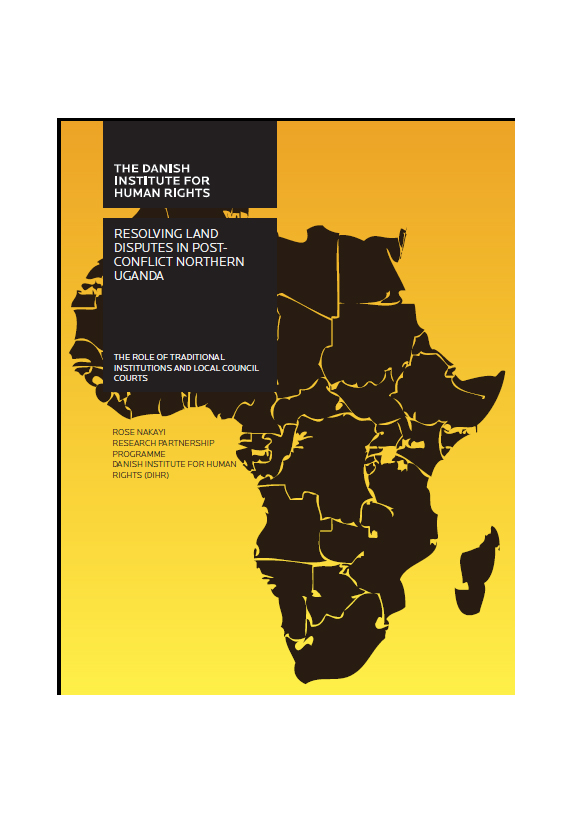Resource information
At DIHR we aim to make our publications as accessible as possible. We use large font size, short
(hyphen-free) lines, left-aligned text and strong contrast for maximum legibility. We are seeking to
increase the number of accessible pdfs on our website, as well as to provide easy-to-read summaries for selected publications.
Post-conflict northern Uganda has witnessed an increase in disputes over land. This has, to a great extent, been as a result of the armed conflict and its aftermath. Beyond that, other chaotic factors embedded in various social, legal, economic, and political aspects of this society have influenced the nature, gravity, and dynamics of these disputes and the way in which Traditional Institutions and the Local Council Courts have attempted to resolve them. Using examples from field research in Acholiland and an analysis of human rights relating to dispute resolution, this paper shows the linkages between (1) the chaotic factors in Northern Uganda, (2) the diverse and unique contestations on land, and (3) the role of Traditional Institutions and Local Council Courts. The paper argues that processes to improve the operation of Local Council Courts and Traditional Institutions may not succeed without simultaneous efforts to do away with the effects of the chaotic environment within which they operate.



